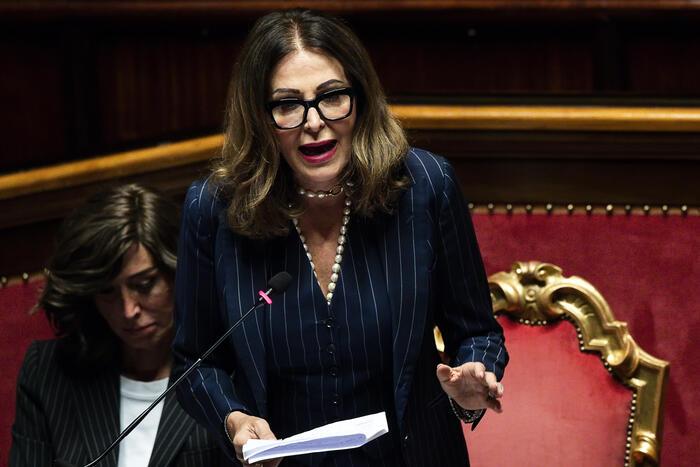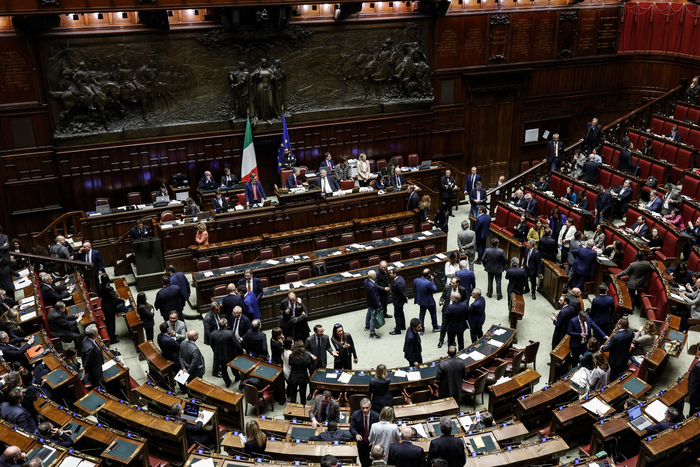By Ken Dilanian and Laura Strickler -
NBC News
They bought Lamborghinis, Ferraris and Bentleys.
And Teslas, of course.
Lots of Teslas.
The biggest fraud in US history, according to prosecutors, resulted in the theft of hundreds of billions of dollars from taxpayers intended to help those harmed by the coronavirus pandemic.
And the thieves couldn't resist buying luxury cars, mansions, private jet flights and flashy vacations.
They embezzled as much as $80 billion - or about 10% - of the $800 billion doled out in an aid plan known as the Paycheck Protection Program (PPP), according to experts.
['Tinder Scammer' Shows the Risks of the Internet: Romance Scams Reach $1 Billion, According to the FBI]
This is in addition to between $90 billion and $400 billion believed to have been stolen from the $900 billion pandemic unemployment aid program, at least half of which was stolen by international fraudsters, according to reports. our sister network NBC News last year.
And another $80 billion potentially stolen from another disaster relief program.
The prevalence of program fraud launched by the COVID-19 pandemic has long been known, but its enormous scope and disturbing implications have not been revealed until now.
Prosecutors alleged Mustafa Qadiri, 38, of Irvine, California, used Paycheck Protection Program money to buy three cars costing six figures each, including this 2011 Ferrari 458 Italia. United States Attorney's Office United, Los Angeles
Even if the highest estimates are inflated, the total fraud across all pandemic relief funds amounts to a mind-boggling amount of taxpayer money that could rival the $579 billion in federal funds included in the massive spending plan. in infrastructure 10 years after President Joe Biden, according to prosecutors, government watchdogs and private experts who are trying to cover up the leaks.
“Nothing like this has ever happened,” said Matthew Schneider, a former Michigan prosecutor who now works at Honigman LLP.
"It's the biggest fraud in a generation,"
he reiterated.
[Scammers take advantage of the undocumented: these are the most common lies and this is how you can avoid them]
Most of the losses are considered irrecoverable, but there is still a chance to stem the bleeding, because federal officials say there is $600 billion left unspent.
The Biden administration last year imposed new verification standards that administration officials say appear to have made a difference in curbing fraud.
But they acknowledge that the 2020 programs sacrificed security for speed, unnecessarily.
Alert for possible scams to those who want to help the victims of the fire in New York
Jan. 10, 202204:09
Justice Department Inspector General Michael Horowitz, who oversees pandemic relief spending, told
NBC Nightly News
host Lester Holt in an exclusive interview that the COVID-19 relief programs were structured differently. way that made them ripe for plunder.
“The Small Business Administration, in sending that money, basically told people, 'Apply and sign and tell us you're really entitled to the money,'” said Horowitz, chair of the Pandemic Response Accountability Committee.
[“My God, my God, I think this is a scam.” This is how they deceive us through cell phone messages to steal money and information]
“And of course for fraudsters, that's an invitation.
What was not done was minimal checking to make sure the money was getting to the right people at the right time,” he added.
The criminal methodology varied according to the program
.
The epic pandemic unemployment benefits scam has been carried out by individual criminals or organized crime groups using stolen identities to claim unemployment benefits from state employment agencies disbursing federal funds.
Each identity could be worth up to $30,000 in benefits, according to Horowitz.
Looting the Paycheck Protection Program worked differently, and could be much more lucrative.
The program authorized banks and other financial institutions to make government-backed loans to businesses, loans that were to be forgiven if the businesses spent the money on business expenses.
Nearly 10 million of these loans have already been forgiven.
Many of the loans converted into grants were in the millions of dollars, public records show.
Experts say that millions of borrowers inflated their number of employees or created companies from scratch.
For much of 2020, lenders did little to verify applications, according to prosecutors and experts.
[Relatives of Immigrants Stranded or Lost at the Border Scammed with Fake Kidnappings]
In part because Congress required the Small Business Administration (SBA), which administered the program, to issue explicit guidelines that, in the interest of getting the money quickly, lenders "will be held harmless for default." of borrowers with the program's criteria." The Government Accountability Office warned of the risk of fraud, but the program continued with that rule.
"The government spent approximately $800 billion and made $21 million in loans to individuals," said Haywood Talcove, CEO of Lexis Nexis, which works with the government to verify identities.
No one knows exactly how much was stolen
.
An academic paper published last year estimated the potential fraud at at least $76 billion, and the authors said that figure was conservative.
The SBA inspector general has identified $78.1 billion in potentially fraudulent economic injury loans, another pandemic relief program for businesses.
The Secret Service has its own estimate: $100 billion.
The basic outline, Talcove said, was "really simple."
People went to state websites and took the names of existing companies or registered new, bogus ones.
[Hope for Immigration Reform Opens Opportunity for New Immigration Scams]
“There is absolutely no security there.
There is no validation of any information," Talcove said.
“And
voila
, you have the ABC company with 40 employees and a payroll expense of 10 million dollars.
And you go and apply for a PPP loan.
It was a piece of cake."
To find more cases, the Pandemic Response Accountability Committee is employing data scientists using artificial intelligence to comb through 150 million records looking for patterns of fraud.
Alert about scams in illegal centers where they charge for COVID-19 tests
Jan. 9, 202201:44
In one case, it found that a Houston gas station phone number was used in 150 loan applications.
This gave clues to federal agents following up on foot.
One of the centers of fraud is Miami, where Juan González is the prosecutor for the Southern District of Florida.
[Latinos are the group most vulnerable to phone scams. So they can be avoided]
González explained that, unlike what happened with the unemployment subsidy, which was granted to all those who met the requirements, the lenders had to stop granting PPP loans when the money ran out, although the demand continued.
The fraud hurt not only taxpayers, but also the people who needed the money
.
Public opinion "should be very angry," he said.
"This is about billions of taxpayer dollars that have been stolen," he said.
“And angrier should be the people who lost their jobs, who worked for companies that couldn't apply for this money because it was no longer available.
Those are really the ones who should be the angriest of all,” he added.
Gonzalez has seen plenty of fraud in Florida, including billions stolen each year from the federal Medicare health insurance program.
But he doesn't remember a robbery so quickly.
“It is hard for me to imagine when so much money has gone so quickly to people who do not deserve it,” he lamented.
[Gift Card Scams on the Rise and Alerts Sparked Nationwide]
David Hines, 29, of Miami, for example, admitted to a fraud scheme that netted him $3.9 million, according to his guilty plea.
Hines, who said in court documents that he struggled with addiction, bought a Lamborghini Huracán for $318,000.
He also spent thousands of dollars on luxury hotels, jewelry, clothing and dating sites, prosecutors say, seizing the car and recovering much of the money.
I was scammed by a fake lawyer and abused by a family member.
Can immigration relief help me?
July 1, 202102:13
Also in Miami, a man and a woman admitted to a complex plot in which, among other things, they claimed to run farms - with many employees - from small single-family homes in the city center.
“Once you looked at the paperwork and saw what it was, you just had to go to the farm to see that there was no farm,” González said.
[He faked his own suicide. He is now going to jail for pandemic loan fraud]
In another Florida case, prosecutors have charged a man who they say used proceeds from a $7.2 million emergency loan to buy a 125,000-square-foot mansion, a Lincoln Navigator, a Maserati and a Mercedes. -Benz.
A California couple was convicted in June of stealing $18 million, with which they
bought three houses, diamonds, gold coins, luxury watches, expensive furniture and other valuables
, according to prosecutors.
Just as they were to be sentenced, they cut off their anklets and fled, leaving their children behind, according to the FBI.
They were captured in February in Montenegro.
The man was sentenced to 17 years in prison and his wife to six.
His case shows that most of the defendants have been released while awaiting trial and sentencing, despite being accused of stealing huge sums.
[Federal authorities arrest 18 former NBA players for alleged health fraud]
Elias Eldabbagh, a Washington DC resident, who appears to have no criminal record, was charged last summer with trying to steal $17 million from the APP and another program.
According to his LinkedIn page, he has a bachelor's degree in computer engineering from California State University, Sacramento, and has worked in a variety of tech jobs.
Among the assets seized by prosecutors was a Tesla Model 3.
He had been released on bail while awaiting trial, but was recently jailed after prosecutors charged him with a new crime - attempted bank fraud - while his original case was pending.
Court records show that he has pleaded not guilty.
His attorney declined to comment.
In the annals of pandemic aid fraud cases, few have matched the brazenness Danielle Miller is suspected of, according to federal prosecutors in Boston, where she was charged.
Charging documents in his case indicate he stole identifying information from a Massachusetts state website and used the information to apply for COVID-19 relief loans.
[Elizabeth Holmes Found Guilty of Four Counts of Fraud for Lying to Investors in Her Theranos Company]
Within 40 minutes, he had $100,000 in taxpayer money, according to court documents.
She soon booked a private jet from Florida to California, where he spent $5,500 at a luxury hotel in West Hollywood, according to court documents.
On his Instagram account, which has 34,000 followers, Miller posted photos of two luxury hotel stays paid for with proceeds of crime, prosecutors say.
Her biography: "I want that."
"Miller's criminal record includes arrests in five different states, many of which were related to theft and identity-related fraud," the complaint in the case states.
Trump, Ivanka and Donald Jr. will be summoned to testify for alleged tax fraud in the next three weeks
Feb. 18, 202201:43
Miller has pleaded not guilty, but court records indicate he intends to plead guilty to an unspecified charge.
She was featured in a recent New York magazine profile that portrayed her as a wealthy Manhattan girl whose life was derailed by the release of a sexually explicit video when she was in eighth grade.
[New York District Attorney Finds “Significant Evidence” of Fraud at Trump Organization]
"Honestly, I consider myself more of a scammer than anything else," she told the magazine.
“Do you know there is a saying that you can sell ice to an Eskimo?
If there is something I want, I get it,” she stated.
Hines was sentenced to six years in prison, and the fraudulent farmers to 18 and 30 months.
But González and other government officials acknowledge that for every person captured, many, many more have gotten away with it.
And while prosecutors have 10 years to pursue fraud, given the sheer scope of the criminality, the Justice Department doesn't have the resources to pursue it all.
“I think there will be a percentage that we will probably never catch,” he lamented.
“But we are working to catch as many as we can,” she added.
Nationwide, only 178 people have so far been convicted in PPP fraud cases, according to the Justice Department.
Many more prosecutions are coming, but even if the numbers reach 2,000 - or 20,000 - it will only be a small fraction of the fraud.
[A couple who stole millions of dollars escapes and leaves a farewell note to their children: "Someday we will be together again"]
So how was this allowed to happen?
There are two prevailing theories, one more lenient with the government than the other.
Many government officials, including González, say that because the administration was trying to respond quickly during the pandemic, a conscious decision was made to make the application process as easy as possible, even at the expense of a thorough investigation.
"The government is delivering a lot of money as quickly as possible to people who really need it," he said.
“As is often the case, the faster the money has to go out, the less likely it is that there are proper controls in place to make sure it isn't received by people who don't deserve that money.”
"What surprised me the most is how brazen he was," Gonzalez recalled.
“How individuals go ahead and lie on these applications, get the money and then openly spend it.
Thinking they're going to do it without anyone checking it out,” he noted.
He added: “Some fraud is unavoidable.
That is the price that the Government was willing to pay so that the money reached the hands of those who really needed it as soon as possible.”
[Couple Arrested for Stealing Millions of Dollars in Cryptocurrencies]
As for the lenders, he said, "perhaps because it wasn't their money that was at stake, some of these institutions didn't do the kind of due diligence that they should have done."
The case of the Californian couple persecuted by the SBA inspector general seems to illustrate that the fraudsters took advantage of the apparent negligence of those who distributed the money.
Marietta Terabelian and Richard Ayvazyan.FBI
The defendants, Richard Ayvazyan and Marietta Terabelian, made millions of dollars using stolen IDs to evade Ayvazyan's disqualifying 2011 conviction for bank fraud, according to court records.
They texted about the cash that was available: “You have to apply.
10,000 guaranteed.
They don't check anything.
It's all automated."
[Coordinated robberies against luxury stores cause concern in several cities of the country]
Days later, they would send text messages saying they had gotten the money.
“Last night I made 7 [applications] and 4 of them got the email that it's funded… I'm telling you to apply [to] Bluevine,” an online lender.
“How much do they send you”
“Like over 500 [dollars] so far.”
Congressional officials say they are investigating half a dozen lenders and service providers, including Bluevine, which processed $4.5 billion in loan applications and touted that a business could get a loan approved in five minutes.
Bluevine said in a statement that it was using "robust enforcement" to reduce fraud in accordance with government guidelines and that it was "regrettable" that federal loan programs were "defrauded despite our best efforts."
[Melania Trump auctions off a hat and falls victim to the cryptocurrency crash]
Talcove, whose company maintains huge databases of public records and sells verification services to governments, says the administration and lenders and banks could and should have prevented such widespread fraud.
When the pandemic relief was proposed, he spoke with Larry Kudlow, one of former President Donald Trump's top economic advisers.
The FBI warns about fraud through QR codes.
So you can avoid them
Jan. 24, 202202:43
“I explained to him that this was going to be the biggest fraud in the history of our country.
They told me that you can have speed or security.
And that they preferred to just take the money out,” he recalled.
Talcove said he told Kudlow that banks have the ability to quickly identify their customers.
Kudlow did not respond to requests for comment.
The idea that there is a trade-off between speed and safety "is a false premise," Talcove said.
“It is not true.
If that were believed, some of the biggest consumer-facing companies in this country would be out of business, right?
It is very easy to stop the type of fraud that we are seeing.
In fact, the private sector stopped it a decade ago.
"The problem that occurred is that the states panicked, as well as the Small Business Administration."
[It's "the biggest robbery in history": the controversial text messages of the wife of Magistrate Thomas]
In a statement, the SBA said it "takes fraud seriously and as such all applicants are required to provide certification of their eligibility at the time of application."
“Eligibility misrepresentation is illegal and, when appropriate, these cases are referred to the Office of the Inspector General,” he explained.
But an official working on pandemic relief who was not authorized to speak publicly acknowledged that Talcove is right.
In his opinion, in the early stages of the loan program there were few controls.
And he didn't have to be like this.
"I agree that the idea that security had to be sacrificed for speed is categorically false," he said.





